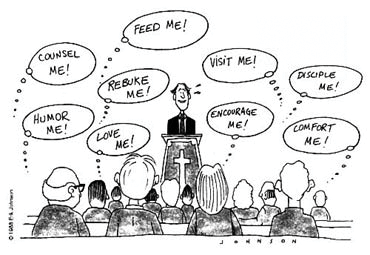
Leave Analogy-Making to the Pros!
God is raising up a new generation of Bible teachers to change lives. You may be one of them -- this blog is full of tips and ideas and commentary to encourage you in your teaching ministry. Glenn Brooke is the author of Teach the Bible to Change Lives (http://www.teachtochangelives.com) and has over 20 years of experience teaching the Bible.

 Read the New Testament in Less than a Month
Read the New Testament in Less than a Month

 | Renovation of the Heart: Putting On the Character of Christ By Dallas Willard / Nav Press We aren't born to stay the way we are. But how many times have we looked around us in dismay at the lack of spiritual maturity in fellow believers? It is evident in the rising rate of divorces among Christian couples. We find it in the high percentages of Christians, even pastors, who regularly view pornography. And we face it each time a well-known leader in the Christian community is found in sexual sin or handling finances dishonestly. Perhaps you have struggled with your own character issues for years, even decades, to little avail. There is good news. In Renovation of the Heart best-selling author Dallas Willard calls it "the transformation of the spirit" - a divine process that "brings every element in our being, working from inside out, into harmony with the will of God or the kingdom of God." In the transformation of our spirits, we become apprentices of Jesus Christ. |

Choosing Your Lesson Material
The reason why this cartoon is funny is because there's more than a grain of truth in it.
How many times have you had a good story or joke or "hook" line, and then wondered how you could use it?
My advice -- put that in your journal or notebook, and let it simmer. Don't force material to come together. Let the Holy Spirit remind you of things at the right time.
Start with the Biblical text. Many, many theological errors and false teaching result from a well-intentioned teacher starting with a joke or story and scrambling to find even the flimsiest connection with a verse.
P.S. The picture came from a weekly Church Laughs list from Christianity Today. You can sign up to get these for free -- another good source of ideas and illustrations for your classes!
Copyright 2005 Robertson and Christianity Today International/BuildingChurchLeaders.com Used with permission.

